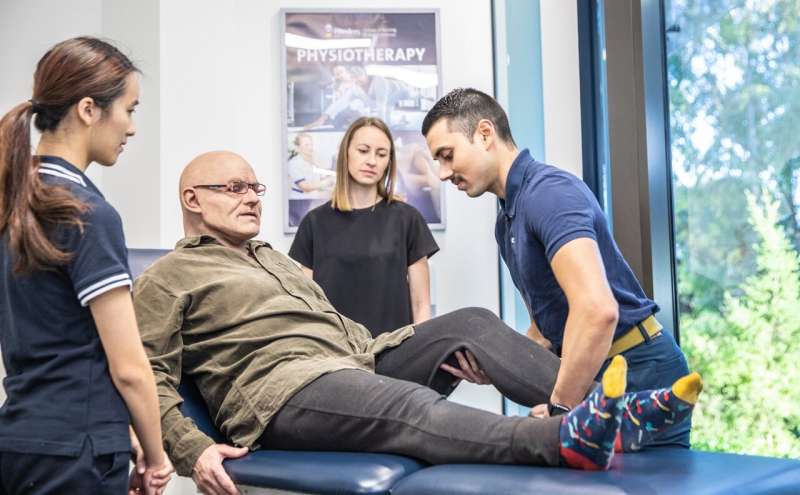This article has been reviewed according to Science X's editorial process and policies. Editors have highlighted the following attributes while ensuring the content's credibility:
fact-checked
trusted source
proofread
Asking the right questions to grow our regional allied health workforce

As regional Australia continues to struggle with workforce shortages in allied health professions, Flinders University researchers are looking to uncover what support and programs are needed to keep people living and working in rural and remote positions.
Led by Dr. Alison Dymmott from Flinders University's Caring Futures Institute, the team will survey regional physios, occupational therapists, speech pathologists and other allied health professionals about how to attract them to the regions, then support them to stay.
The first study is published in the journal BMC Health Services Research. The second study is published in the journal Rural and Remote Health.
"There is a pressing need for more allied health professionals in rural and remote Australia and this will only worsen with our aging population and an expanding NDIS that allied health professionals pay a key role in," says Dr. Dymmott, Academic Lead of Rural Allied Health in the College of Nursing and Health Sciences.
"It costs a lot of money to keep recruiting people to these positions and even once attracted, many people only stay for one to two years and leave.
"What is needed is support programs for career progression, alongside professional and personal support that may prevent people from feeling isolated while living and working in rural communities. Our survey is looking to determine what these programs should look like so they can be as effective as possible."
The online questionnaire is available now and the team is inviting all allied health professionals, supervisors and managers across Australia to take part, from both rural and remote settings, as well as those in metropolitan areas.
It takes around 15 minutes to complete and participants will have the opportunity to enter a draw to win a $250 voucher.
"We're hoping to hear from as many people as people, from those who have worked in remote settings to those who may have never ever considered it, all feedback will help us understand how best to assist our regional allied health workforce," says Dr. Dymmott.
The project builds upon Flinders University's years-long evaluation of the South Australian government's Allied Health Rural Generalist Pathway; a post-graduate work integrated education program designed to enhance early career allied health professionals' clinical capabilities and improve service delivery in rural settings.
A recent study by Dr. Dymmott and colleagues found the program had a positive impact on participants and consumers, while another study found the program was economically viable, with a positive return on investment when supporting trainees.
"Our research demonstrates that with the right support and training, allied health professionals can significantly impact the quality of care in regional and rural communities," says Dr. Dymmott.
"With a relatively small investment, the program can achieve substantial returns in terms of workforce stability and service quality in rural areas as it not only supports individual career development but also strengthens the entire health service network.
"However, our analysis also identified areas in need of improvement, including participants' work life balance and in some cases a lack of managerial support to complete the training.
"This highlights the program must continue to adapt to ensure the regions can attract and retain an allied health workforce and the best way to do that is to listen to the participants themselves."
More information: Alison Dymmott et al, Sustaining our rural allied health workforce: experiences and impacts of the allied health rural generalist pathway, BMC Health Services Research (2024). DOI: 10.1186/s12913-024-11207-5
Dymmott et al, The allied health rural generalist pathway: a cost consequence analysis, Rural and Remote Health (2024). DOI: 10.22605/RRH8557





















